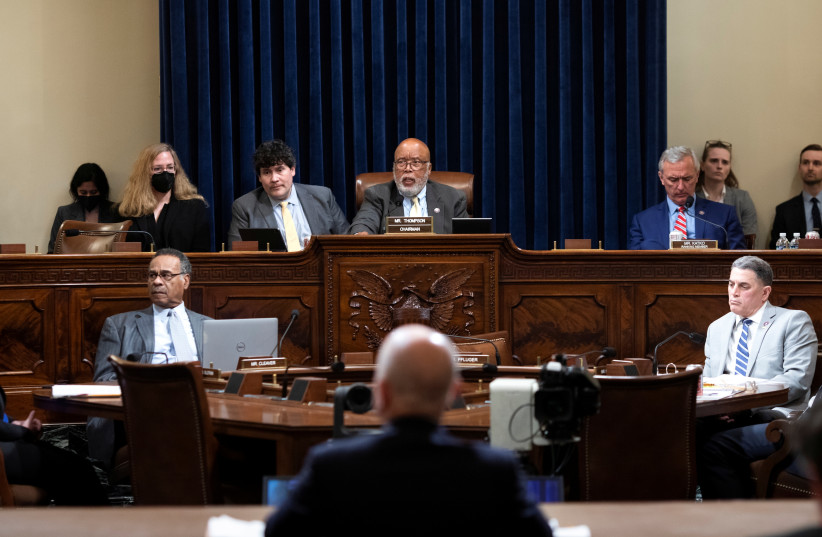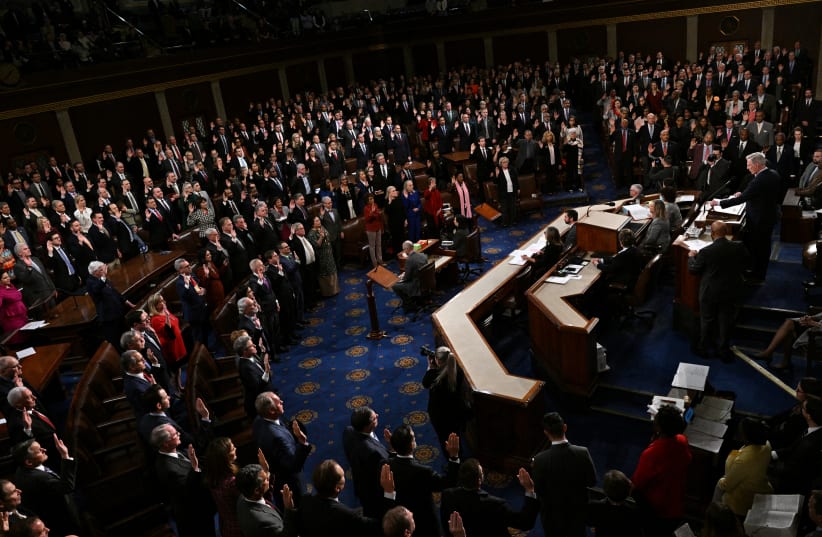The Republican-led House Appropriations Committee is highlighting the Israel-focused provisions included in its spending package released early Thursday, which allocates almost $4 billion to Israel for defense and prohibits funding for UNRWA and some other UN functions.
"Over five months ago, we witnessed Hamas brutally attack the Israeli people. Unfortunately, the situation in the region has only gotten worse. Now more than ever, we must support our ally Israel in its efforts to defend itself against the attacks of Hamas and Iranian-backed proxies,” according to a statement from Committee Chairwoman Rep. Kay Granger’s (R-Texas) office.
“The Further Consolidated Appropriations Act continues our commitment to Israel, providing critical defense assistance and holding the United Nations accountable for its blatant bias against our great ally – and in the case of the United Nations Relief and Works Agency (UNRWA), its proven collusion with Hamas,” Granger said.The State, Foreign Operations, and Related Programs Appropriations Act prohibits funds for UNRWA and the UN Commission of Inquiry against Israel.
It also forces the UN and other international organizations funded in the bill to assess and report on efforts to combat anti-Israel bias and antisemitism and to vet personnel for connections to terrorist groups, the Act withholds funds from the UN Human Rights Council to hold it accountable for blatant anti-Israel actions and reform the Council’s election process to prevent human rights abusers from becoming members.


The Act will also implement new conditions on any assistance to Gaza, including mechanisms for coordination with Israel, prevention of diversion to Hamas or other terrorist entities, and a requirement for third-party monitoring, the statement said.
Funding provided to Iron Dome and David's Sling
The Defense Appropriations Act provides $500 million of funding for the testing and procurement of the Iron Dome, David’s Sling, and Arrow.
After days of delay, congressional leaders unveiled the $1.1 trillion bipartisan spending measure for defense, homeland security, and other programs giving lawmakers less than two days to avert a partial government shutdown. The Republican-controlled House of Representatives will vote on the sprawling package on Friday, leaving the Democratic-majority Senate only hours to pass the package of six bills that covers about two-thirds of the $1.66 trillion in discretionary government spending for the fiscal year that began on October 1.“These final six bills represent a bipartisan and bicameral compromise,” the two top Senate negotiators – Patty Murray, a Democrat, and Susan Collins, a Republican – said in a statement.“They will invest in the American people, build a stronger economy, help keep our communities safe, and strengthen our national security and global leadership.”Democratic Senate Majority Leader Chuck Schumer said he is “hopeful” Congress can avert a shutdown if Democrats and Republicans in his chamber work together.The compressed schedule raised the risk of at least a brief partial shutdown after a Friday midnight deadline unless Schumer can reach an agreement with Senate Republicans to expedite the bill.House Speaker Mike Johnson touted what he called a series of wins for Republicans, from higher spending for US defense and border security to a cutoff of US funding for the main United Nations relief agency that provides humanitarian assistance to Palestinians in Gaza.“This FY24 appropriations legislation is a serious commitment to strengthening our national defense by moving the Pentagon toward a focus on its core mission,” Johnson said in a statement released along with the text of the legislation.Democrats said they blocked some Republican cuts and policy measures and touted funds aimed at lowering childcare costs, supporting small businesses, and fighting the flow of the opioid fentanyl.“We defeated outlandish cuts that would have been a gut punch for American families and our economy – and we fought off scores of extreme policies that would have restricted Americans’ fundamental freedoms, hurt consumers while giving giant corporations an unfair advantage, and turned back the clock on historic climate action,” said Murray, the Democratic chair of the Senate Appropriations Committee.Two weeks ago, Congress narrowly avoided a shutdown that would have affected agricultural, transportation, and environmental programs.The text unveiled on Thursday fills in the details of an agreement in principle between Johnson and Schumer, which Democratic President Joe Biden has pledged to sign into law.With a slim 219-213 House Republican majority, Johnson will have to rely on Democratic votes to get the spending bill to the Senate.Many House Republicans are still expected to oppose the legislation, including hard-liners who want steeper spending cuts.Besides the departments of Homeland Security and Defense, the bill would fund agencies including the State Department and the Internal Revenue Service as it girds for its April 15 taxpayer filing deadline.